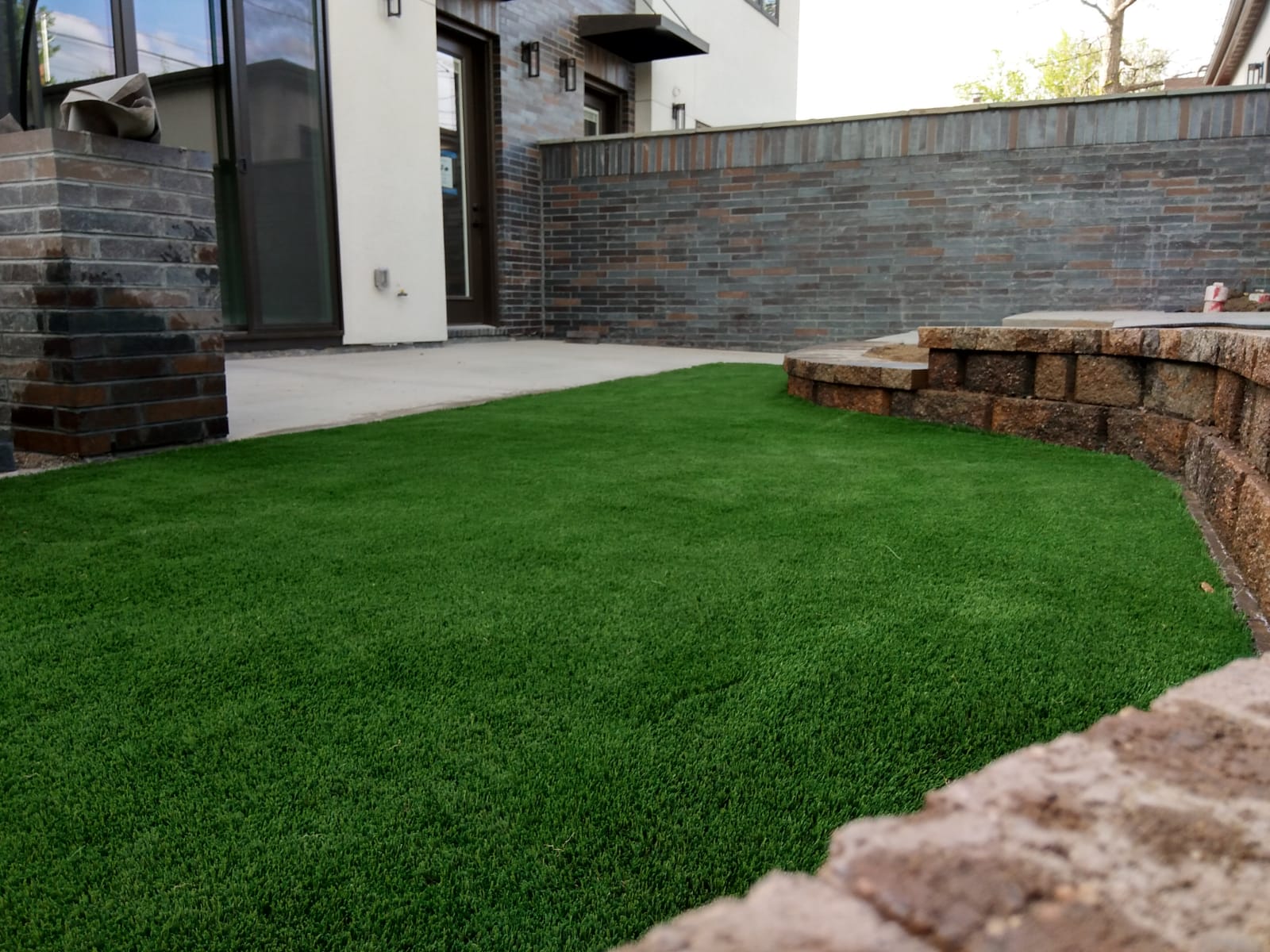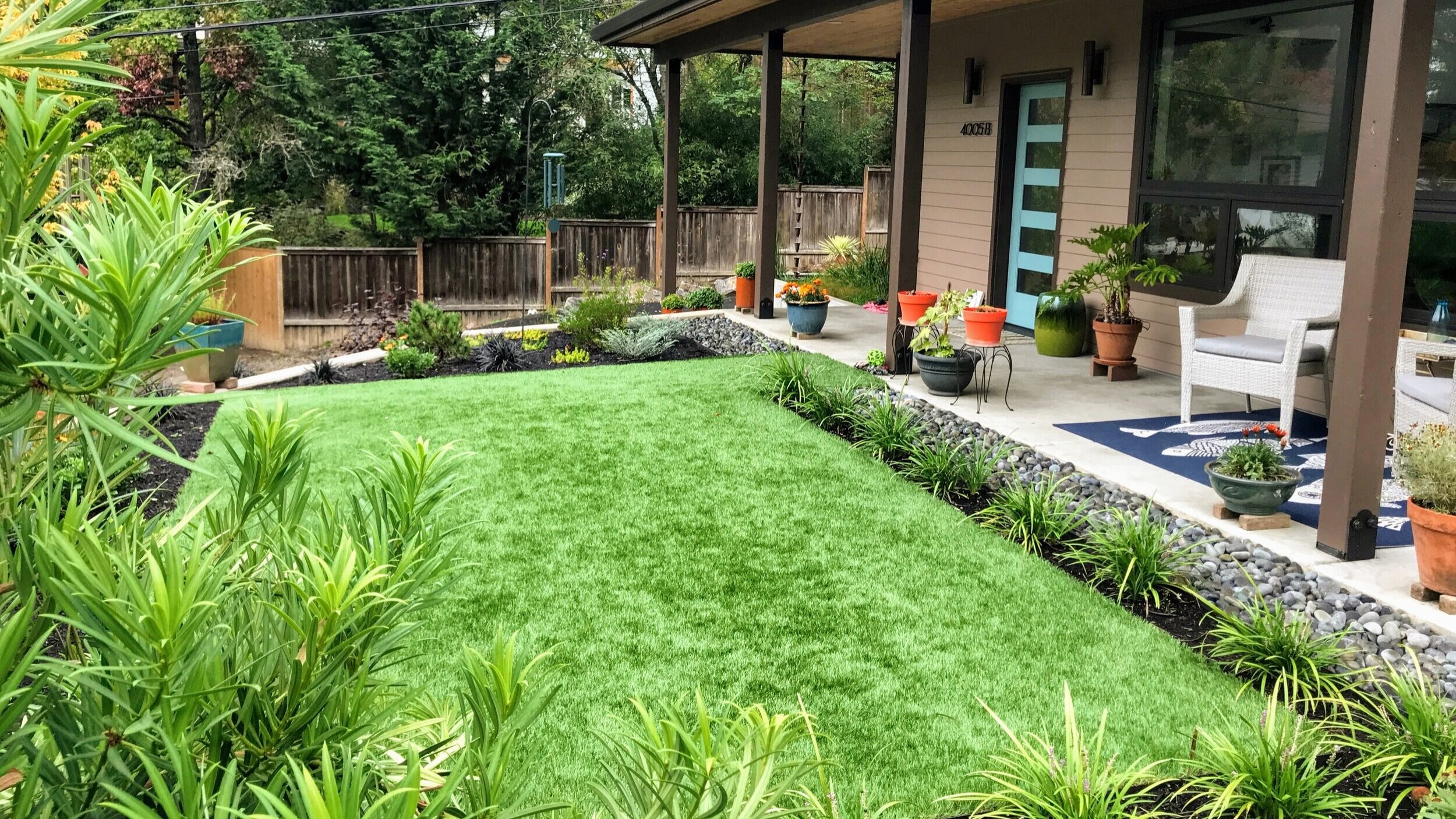Leading Factors to Take Into Consideration Artificial Lawn for a Low-Maintenance and lavish Yard
As home owners significantly look for sustainable services for outdoor areas, artificial lawn presents an enticing alternative to traditional grass. Its ability to keep a dynamic look year-round without the worries of mowing, watering, or chemical therapies makes it a practical option for those aiming to lower maintenance efforts. The ecological advantages, including substantial water conservation and reduced dependence on chemicals, straighten with modern eco-friendly worths. The advantages prolong past plain aesthetics and sustainability; exploring the complex implications of synthetic lawn discloses a thorough approach to lawn administration that qualities much deeper factor to consider.
Year-Round Plant
Among the most significant benefits of synthetic turf is its ability to give year-round greenery, no matter environment conditions. Home owners usually deal with obstacles in keeping a dynamic grass because of seasonal adjustments, dry spells, or hefty rainfall. Fabricated turf removes these issues, guaranteeing a regularly rich appearance throughout the year.
This synthetic alternative is crafted to hold up against different weather condition circumstances, from scorching summertime heat to cold winter season temperatures. Unlike natural yard, which might brown or become irregular throughout extreme conditions, fabricated turf preserves its vivid color and texture, boosting the aesthetic appeal of any landscape.
Additionally, man-made grass is immune to bugs and diseases that generally affect natural grass. This resilience contributes to its long-lasting elegance, as there is no demand for chemical therapies or plant foods that can be hazardous to the atmosphere. In addition, homeowners can take pleasure in the visual benefits of a well-kept yard without the cyclical difficulties presented by all-natural grass care (artificial grass).
Lowered Maintenance Efforts
Man-made lawn dramatically minimizes maintenance efforts, enabling homeowners to delight in an excellent grass without the lengthy tasks connected with all-natural lawn care. One of one of the most significant benefits of synthetic turf is the elimination of routine mowing. Without demand for a lawnmower, property owners save both time and the price of upkeep connected with this tools.

Cleaning up synthetic lawn is uncomplicated; an easy rinse with a hose or the occasional brushing to remove debris is generally adequate - backyard artificial grass. This convenience of care allows property owners to invest more time enjoying their outside spaces instead of laboring over them. In recap, the decreased upkeep initiatives connected with artificial lawn make it an enticing selection for those seeking a lovely, convenient yard
Water Preservation Perks
The considerable decrease in maintenance initiatives connected with fabricated turf encompasses water conservation, making it an eco pleasant choice for property owners. Typical grass require considerable quantities of water to stay rich and lively, frequently causing extreme water use, specifically in deserts. On the other hand, man-made turf eliminates the demand for routine watering, substantially decreasing the total water consumption in your lawn.
By selecting artificial turf, house owners can conserve countless gallons of water yearly. This change not just benefits private homes yet also adds to wider ecological efforts focused on reducing water waste. In locations experiencing water scarcity, the adoption of synthetic lawn can play a considerable role in minimizing the effects of drought and ensuring that valuable water resources are used a lot more effectively.
In addition, the installment of fabricated grass can help reduced community water need, profiting the community as a whole. With expanding understanding of environmental issues, picking synthetic yard functions as a proactive step towards sustainable landscaping, helping to protect all-natural water sources discover this while keeping a cosmetically pleasing outside space (turf installation). In summary, man-made turf presents a compelling service for water conservation, lining up environmental obligation with modern landscape design demands

Insect and Allergy Decrease
A significant benefit of mounting synthetic lawn is its capability to lower parasites and allergens in outside spaces. Traditional yard yards commonly offer as breeding grounds for insects such as mosquitoes, ticks, and ants, which can produce discomfort and health threats more information for pet dogs and family members. In comparison, man-made turf removes the organic product that draws in these parasites, thereby substantially decreasing their populations in your yard.
Additionally, all-natural grass can nurture mold and mildew, plant pollen, and various other allergens, which can trigger allergic reactions and respiratory system issues for delicate individuals. Synthetic turf gives a cleaner environment, lowering the potential for allergenic responses. Unlike all-natural grass, synthetic grass does not generate pollen, making it a superb choice for allergic reaction sufferers looking for to appreciate their exterior rooms without the threat of flare-ups.
In addition, the lack of dirt in fabricated lawn indicates there is less dust and dust, further lessening air-borne allergens. This low-maintenance option not just enhances the visual allure of your yard yet also advertises a much healthier outdoor setting, enabling families to enjoy their grass without the constant fear of irritants and insects. Hence, man-made yard is a critical selection for those prioritizing comfort and health in their exterior space.
Long-Term Expense Financial Savings
Investing in artificial lawn can lead to substantial long-term price savings for house owners. Artificial grass removes the demand for regular grass maintenance expenditures, such as mowing, fertilizing, and watering.
In addition, the durability of synthetic turf better improves its cost-effectiveness. The majority of high-grade man-made grass products can last 15 to 25 years with marginal upkeep, minimizing the requirement for replacement or substantial repair services. In contrast, all-natural grass may call for frequent reseeding and regular care, which can swiftly accumulate in costs.
Energy financial savings are one more important aspect. Home owners can expect to see lower water costs, as synthetic turf does not need irrigation. In addition, the reduction in grass treatment solutions can maximize useful time and resources, permitting property owners to assign check my reference their budget plans somewhere else.
Final Thought
In recap, fabricated turf presents numerous advantages for home owners looking for a low-maintenance and dynamic landscape. Its capacity to supply year-round greenery, coupled with minimized maintenance efforts and significant water preservation, makes it an attractive selection. Additionally, the reduction of irritants and insects adds to a healthier outside setting. Ultimately, the lasting cost savings connected with man-made turf strengthen its standing as a lasting and useful solution for boosting outside areas.
Synthetic turf substantially decreases maintenance initiatives, enabling homeowners to enjoy a pristine grass without the taxing tasks linked with natural lawn care.The substantial decrease in upkeep initiatives connected with fabricated turf prolongs to water preservation, making it an ecologically pleasant alternative for house owners. In comparison, artificial yard gets rid of the demand for normal watering, significantly decreasing the total water intake in your backyard.
In locations experiencing water shortage, the adoption of fabricated turf can play a substantial duty in minimizing the effects of drought and making sure that important water resources are utilized extra efficiently.
With growing recognition of environmental concerns, choosing artificial turf offers as a proactive step towards sustainable landscape design, aiding to preserve all-natural water resources while maintaining a cosmetically pleasing outside space.